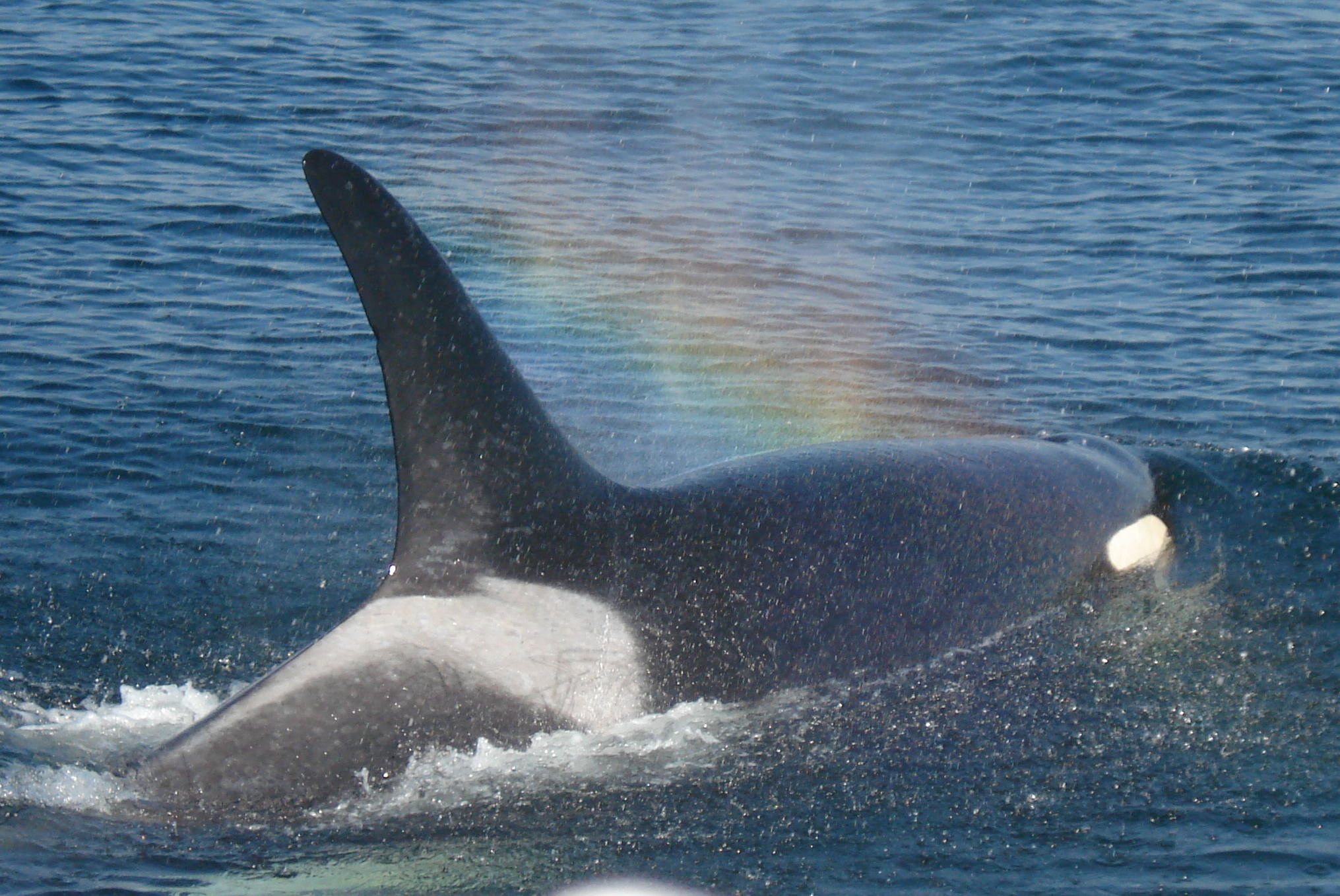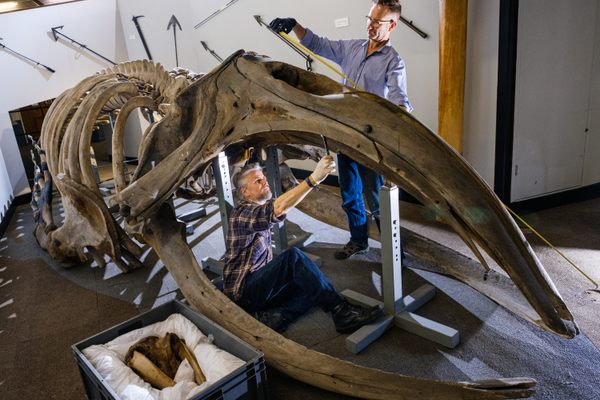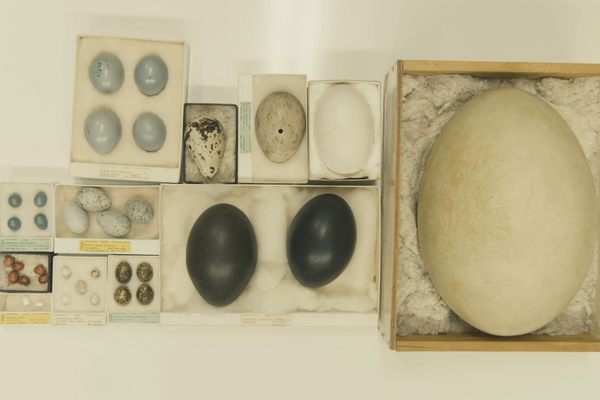You Can Now Eavesdrop on Orcas on Your Computer
Listen to the peaceful, and sometimes not-so-peaceful, sounds of the sea for the sake of science.

Somewhere in the Haro Strait, where Washington State trickles into British Columbia, a whale poops. That waste is a scientific goldmine, but not if scientists don’t know it’s there. But if you listen close, you might be able to help them find it.
An internet app called OrcaSound allows citizen scientists to livestream the ocean sounds of the Pacific Northwest from anywhere in the world, to help gather data about the resident killer whales and their environs. Scott Veirs, the project’s lead researcher, said that hydrophones (underwater microphones) have been in place off Washington’s San Juan Island since the mid-2000s, capturing the submarine goings-on and bringing them to listeners in a rudimentary form. The app relaunched recently, and now offers real-time streaming, as well as sounds from an all-new hydrophone station off Whidbey Island, just to the southeast of the the older ones.
Veirs developed OrcaSound because he saw an opportunity for engaged citizens to help fill gaps in the study of orcas. The whales have long been well-observed in the summertime, when the weather cooperates and the cetaceans are more accessible to scientists and the Coast Guard, who observe them by boat. But questions have lingered about their lives during other times of the year. Now, in any season, listeners can notify scientific authorities to alert them to the presence of whales, so they can rush out like first responders to collect important data. The orcas have been facing a food crisis in recent years, so their fecal matter can help scientists get a sense of what they’re managing to eat, and what their stress levels are like. Having citizens on the line is also an exercise in preparing for the worst, like an oil spill. In such a case, there will be multiple (ear) witnesses to attest to where the whales were at the time.

But whales and waves are not the only things listeners will hear. “I want people to be able to listen to the ocean easily so they understand that it’s full of wonderful sounds,” says Veirs, “but it’s also full of noise pollution.” Ships make whales’ lives much harder, not only because they take up space and pollute the water and have giant rotating blades underneath them, but also because they can effectively blind whales with noise. Like bats, whales hunt with echolocation. Noisy ships create an effect known as “masking,” which dulls the whales’ critical vocalizations. Ty Crisafulli, who also does research for OrcaSound, likens masking to someone constantly flicking the lights on and off as you try to cook a meal. Not only is it dangerous, but “it would kind of stress you out,” he says.
The hope is to make sure that whales are getting the nutrition they need, and provide scientists with data to help them push for restrictions on noise pollution. But Crisafulli says that, over time, the project could help answer more “visionary” questions about the very nature of orca life. If they are producing the same patterns of clicks over and over again, for example, does that count as language? Do certain kinds of calls correspond with certain weather conditions, or with a particular whale’s company?
Any answers are probably a long way off, but in the meantime, Veirs hopes that people will heed OrcaSound’s motto: to listen not just to whales, but for whales.



















Follow us on Twitter to get the latest on the world's hidden wonders.
Like us on Facebook to get the latest on the world's hidden wonders.
Follow us on Twitter Like us on Facebook